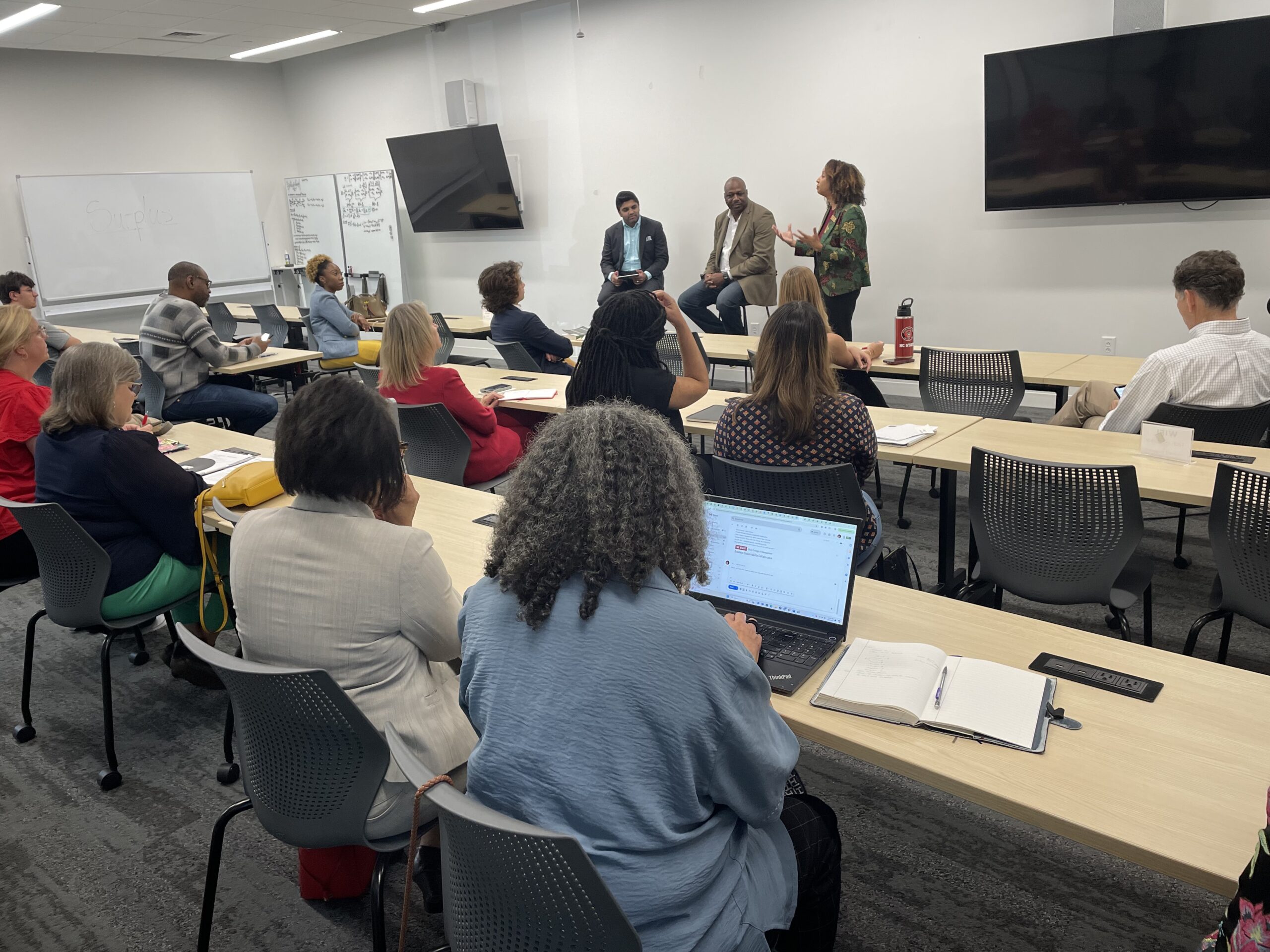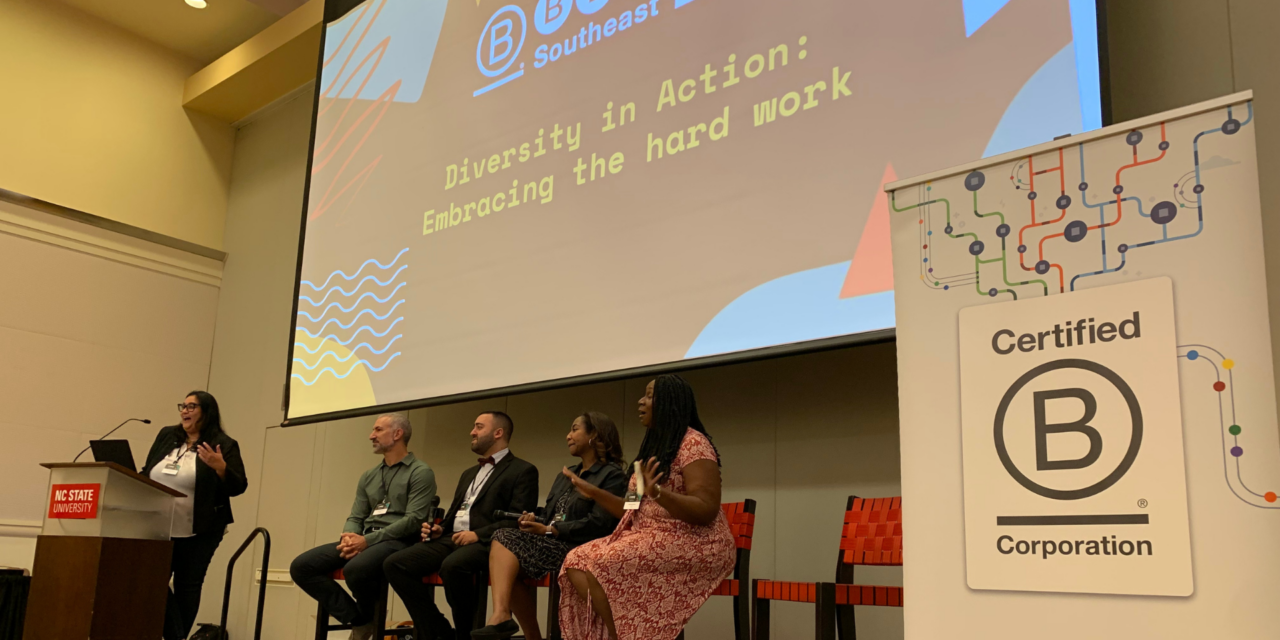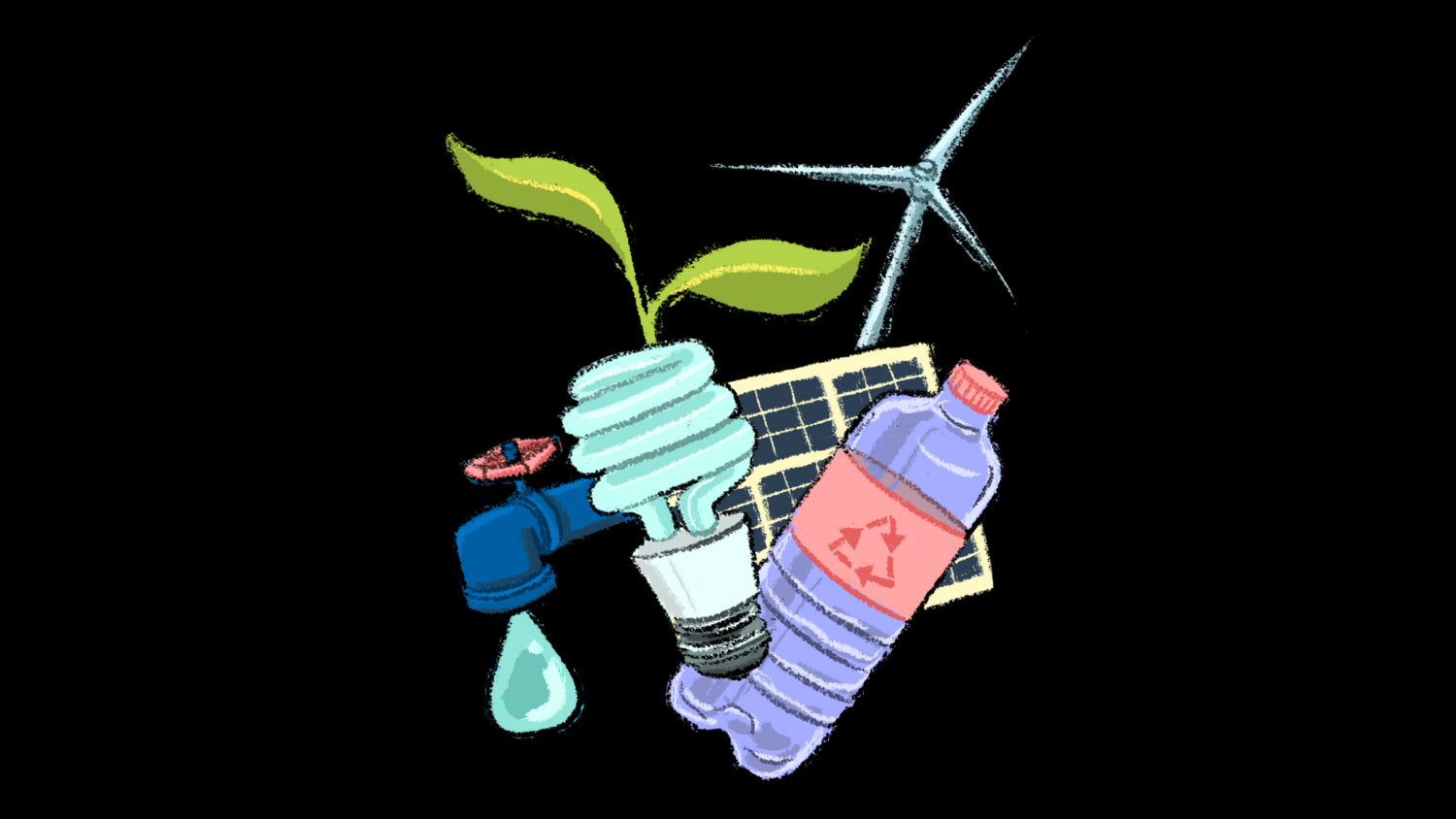2013: THE YEAR AHEAD FOR SUSTAINABILITY

Photo credit: Alexandr G./Creative Commons
In every corner of North Carolina, there are leaders, innovators, activists and business people stepping up to the challenge of sustainability.
We reached out to some of the key influencers in the state to ask them what they see in store for the year ahead.
Here’s what they had to say.
 CHRIS CARMODY – INSTITUTE FOR SUSTAINABLE DEVELOPMENT
CHRIS CARMODY – INSTITUTE FOR SUSTAINABLE DEVELOPMENT
Executive Director
What trends do you see for sustainability practices for NC’s businesses or communities in 2013?
Being green and sustainable is no longer only a cost-reduction tactic for small business – it’s also the price of admission to competing for business from the world’s largest companies. Consumers may not by driving green trends, but B2B requirements for green supply chain management will make or break many NC businesses.
We hear a lot about WalMart’s green supply chain initiatives, but there’s not a major company from FedEx to IBM or Coca Cola to NASCAR that isn’t requiring vendors to become green and to prove their efforts are legitimate.
Those companies that figure this out early will have a big head start. Those that fall behind will be in trouble. For example, Hughes Pittman Gupton (HPG), Raleigh’s largest accounting firm, has won over half a million dollars in new contracts because it could credibly demonstrate its sustainability to other business partners.
What innovations do you see on the horizon that will make our State’s businesses and communities more sustainable?
Disasters are really, really expensive. Insurance companies don’t want to insure in states that are highly vulnerable to storm surges. Many companies have billions of dollars at assets that are increasingly in nature’s way. Environmental innovations that will reduce the impact of storms, sea level rise, and related disasters are multi billion dollar markets. Methods to protect our fragile power grids from storm surge will be among the next innovations. Protecting drinking water will follow.
Do you think sustainability will matter more or less in 2013?
Sustainability will matter more, and it will be seen as an economic imperative by businesses even if policy makers are skeptical. America’s largest businesses now see sustainability as a lens for more productivity, as a risk management approach, as an employee engagement strategy, and as an innovation tool — much more than they see it as a marketing imperative.
What projects/initiatives/goals are you involved in for 2013 that have you most excited?
We’re most excited about our Environmental Help Desk for Business, a free resource to help small and medium-sized businesses understand green supply chain requirements that can help them win new business in the B2B area and to find environmental innovations to reduce their eco-impact and their operational costs at the same time. Businesses can find new content generated by our graduate fellows from Duke, UNC, NC State, and Elon, and can ask direct questions about green supply chain issues in their sector – free of charge. We’re on Twitter @EnviroHelpDesk and on Facebook, too.
 ROBERT PHOCAS – CITY OF CHARLOTTE
ROBERT PHOCAS – CITY OF CHARLOTTE
Energy & Sustainability Director
What trends do you see for sustainability practices for NC’s businesses or communities in 2013?
I think there will be continued growth in collaborative efforts focused on sustainability. More entities looking to work together to address questions and to implement solutions. These collaborations will be not only within distinct fields, e.g., public or private, but across these boundaries so that more public/private collaborative efforts will be undertaken. Envision Charlotte is a great example of this concept; a public/private partnership aimed at making center city Charlotte the most environmentally sustainable center city in the country.
What innovations do you see on the horizon that will make our State’s businesses and communities more sustainable?
I see an innovation in the way people understand and approach sustainability. Businesses and communities are better understanding that sustainability requires entities to remove themselves from the silos they are used to operating in and work collaborative to tackle issues for the betterment of their communities and their businesses. It may take more effort and time to do so, but there chances of creating a sustainable community/business increase greatly when this happens.
Do you think sustainability will matter more or less in 2013?
I think it will matter more as we continue to have to do more with less. Sustainability offers the opportunity to increase efficiencies and maximize value from assets, and as we continue to recover from the recession, communities and businesses will be focusing on this approach.
What projects/initiatives/goals are you involved in for 2013 that have you most excited?
There are three projects that are at the top of my to do list for 2013: implementation of an internal environmental operations strategy; development of a community sustainability plan; and development of the city’s energy strategy.
 PAULA ALEXANDER – BURT’S BEES
PAULA ALEXANDER – BURT’S BEES
Sustainability Director
What trends do you see for sustainability practices for NC’s businesses or communities in 2013?
Transparency in supply chain – this is a top priority for Burt’s Bees and critical to many businesses to fully understand and manage our business impacts. It’s far easier for single ingredient industries like coffee and foods, products like ours with numerous ingredients must aim for traceability first, transparency second and responsibility third. The first two are about risk mitigation and the third about community building through funding and knowledge investments.
Whole systems thinking – whole systems thinking ensures we evaluate the impact of decisions on the entire value chain and life cycle. Life cycle analysis can be complex and expensive but life cycle thinking doesn’t have to be. Sustainability needs to be part of the business from source to end of life disposal and this requires that all business functions, not just the sustainability team, engage in sustainability. It’s great to see many of the business schools such as Kennan Flagler integrating sustainability into 100% of the curriculum.
This kind of integration will ensure we’re developing business leaders across functions who lead with sustainability in mind.
Collaboration – whether it’s the the Sustainable Apparel Coalition and their efforts to improve the planetary and people impacts of the apparel industry, or McKinsey recommending that energy companies collaborate on fracking infrastructure to drive efficiencies and reduce footprint, collaboration is critical in this next phase of sustainability. Burt’s Bees is talking to competitors and food companies about responsible sourcing and participating in a beauty industry packaging roundtable to share learning and address pain points in our industry.
What innovations do you see on the horizon that will make our State’s businesses and communities more sustainable?
Hydroponics and Aquaponics – these are two forms of sustainable agriculture that are gaining traction in NC and other points around the US and the globe, particularly as we look to bring healthier food to our urban centers and address the issues of food deserts.
Though NC is already a leader in traditional agriculture, it would be exciting to see NC become a leader in sustainable agriculture.
Do you think sustainability will matter more or less in 2013?
I believe sustainability will matter more in 2013. There’s momentum with businesses seeing benefits of sustainability that go beyond cost savings. With cost and margin pressures only likely to continue in 2013, we need to get better at measuring the ROI of sustainability. We also must evolve beyond measuring financial ROI to measuring social ROI that considers not only outputs but also long term impacts.
What projects/initiatives/goals are you involved in for 2013 that have you most excited?
Supplier Site Visits – we have a responsible sourcing manager who in 2012 visited 6 African countries for priority ingredients like Shea Butter, Cocoa Butter and Baobab Oil. She’ll continue this discovery with more site visits on our path to transparency in 2013. Our commitment to traceability starts with supplier self-certification and questionnaires; site visits are the next step.
One Sustainability Metric Tool – in order to help us ensure we’re thinking source to disposal in our innovation process, we’re developing a One Sustainability Metric Tool. It will be completed by project teams for each new product and for changes to existing ones. Scores will be compared to baseline scores of the existing business and the tool will be used by teams and leadership to keep raising the bar.
Sustainable Agriculture and Community Gardening Investment – through The Greater Good Foundation and Live the Greater Good Employee Engagement Program, we have two types of giving: 1) Strategic: programs that deliver triple bottom line benefits and support The Greater Good and 2) Good Neighbor: programs that support being a good neighbor in the Durham, North Carolina community. In 2012 we placed greater focus on Strategic Giving aligning against a single-minded cause of supporting honeybee health through investments in sustainable and urban agriculture as well as community gardening. In 2013, as our foundation grows and as we commit the Live the Greater Good employee hours to service, we’ll be able to support even more of the numerous projects that are happening around the Triangle.
 STEPHEN KALLAND – NC SOLAR CENTER
STEPHEN KALLAND – NC SOLAR CENTER
Director
What trends do you see for sustainability practices for NC’s businesses or communities in 2013?
On the energy front, several policies will continue to drive adoption of energy efficiency and renewable energy. First, a number of key federal clean energy tax credits were renewed as a part of the “fiscal cliff” resolution, including:
- the 50% bonus depreciation for qualified properties, including property depreciated under Modified Accelerated Cost Recovery System (MACRS). This category includes most renewable energy facilities. The remaining 50% is depreciated over the MACRS schedule;
- Production Tax Credit (PTC) for wind facilities (the bill also tweaks and extends the PTC for other renewable technologies as well);
- Energy efficient existing homes and new homes;
- Alternative fuel vehicle refueling property;
- Alternative fuel excise;
- Electric vehicles with two or three wheels;
- Cellulosic biofuel production and plant property allowance;
- Biodiesel and renewable diesel; and
- Energy efficient appliances.
These tax credits and bonus depreciation have been important measures to support investment in and growth of the renewable and alternative energy industry. Combined with North Carolina’s own tax credits for clean energy and continued rising electricity and gasoline prices, I expect 2013 to be a robust year for the adoption of clean energy.
What innovations do you see on the horizon that will make our State’s businesses and communities more sustainable?
Perhaps the area for innovation that yields the greatest promise in the coming year is the increasing proliferation of so-called “smart grid” technologies. “Smart grid” generally refers to a suite of technologies used to modernize the span of electricity generation, transmission, distribution and use using computer-based data collection, remote control and automation. These technologies can be used to offer big improvements in renewable energy utilization and energy efficiency and management on the electricity grid and in the energy users’ homes and offices. The Triangle is home to one of the largest clusters of companies engaged in the “smart grid” sector and a number of fascinating technology demonstrations are being planned for the region. These projects will make energy use more transparent and tangible while allowing greater use of renewables and other distributed energy resources. In turn it will make energy a more flexible piece of a businesses budget, allowing decisions to impact energy costs more dramatically, rather than the status quo where energy is largely a fixed cost that they can’t affect very much.
Do you think sustainability will matter more or less in 2013?
Sustainability always matters more as we use more of our scarce resources and get more crowded in our communities. I am always surprised when I visit other areas of the country and am reminded of what a lack of thinking about sustainable design practices writ large can mean for economic development. Traffic gridlock, poor air quality days, water shortages and water quality issues are all bemoaned in various parts of NC, but are put into context for me when I visit larger metro areas like Atlanta, the DC corridor, the Northeast, and California. That said, NC is the 10th largest state and growing rapidly. If we don’t keep sustainability practices in focus in a way that enhances both economic and environmental conditions, we run the risk of growing into one of those more challenged areas of the country.
What projects/initiatives/goals are you involved in for 2013 that have you most excited?
The NC Solar Center is continuing to support the solar industry as it grows by leaps and bounds across the state in 2013. Everything from training, to business technical support, recruitment and development, to policy support for local governments trying to responsibly grow their economic benefits that accrue from a robust solar development industry. The renewal of the wind PTC means we will continue to be engaged to provide support to industry and state and local officials that are seeking to develop both on-shore and off-shore wind projects near the NC coast.
We also are preparing to launch out next round of grants for the Clean Fuels/Advanced Transportation program. This program will give out several million dollars in small grants to support clean transportation fuels infrastructure development in 24 counties that are designated as in “non-attainment” for air quality stadards by the US EPA. We hope that program will roll out this spring.
With natural gas prices so low, we are also excited about working with the state’s gas and electric utilities as well as with the combined heat and power (CHP) industry to expand our state’s installed base of distributed CHP projects. CHP, also known as cogeneration, is an efficient, clean, and reliable technology which simultaneously generates power and thermal energy from a single fuel source. By installing a CHP system designed to meet the thermal and electrical loads of a facility, businesses can decrease energy costs, increase operational efficiency and potentially improve energy reliability. At the same time, CHP reduces the emission of greenhouse gases, which contribute to global climate change.
 HILARY DAVIDSON – DUKE ENERGY
HILARY DAVIDSON – DUKE ENERGY
Director, Sustainability & Community Affairs
What trends do you see for sustainability practices for NC’s businesses or communities in 2013?
A focus on resource efficiency. With the economic pressures facing our state and our nation, I believe that most NC businesses and communities will be looking closely and creatively for ways to reduce their expenses, manage their risks and also develop opportunities to grow their business. Since sustainability is all about seeking ways to do business in a way that is good for people, planet and profits, I expect that folks will find some “low hanging fruit” as they assess their organizations and processes. For example, often there are simple energy efficiency improvements that can be implemented that begin right away to reduce costs and environmental impacts. Duke Energy provides information, tools and/or incentives to help customers reduce energy.
Collaboration: As businesses and communities seek sustainable solutions, I expect to see more public and private collaboration. Collaboration is often the key to innovative, sustainable solutions because it is more inclusive of stakeholders and often involves systems thinking. The Institute for Emerging Issues Commons at NC State will serve as a great resource for collaboration across the state to address issues facing North Carolina.
Corporate sustainability trends likely will include increased sustainability reporting, employee sustainability engagement, and increased use of social media for customer engagement.
What innovations do you see on the horizon that will make our State’s businesses and communities more sustainable?
With the explosion of information, I expect to see continued technological innovation with smart devices, such as smart energy and water meters, that can give consumers more information and conrol over how and when they use resources. New technologies and materials, increased automation and smarter logistics are improving manufacturing productivity and often at a lower environmental impact. With manufacturing as NC’s largest industry sector, contributing more to the state GDP than any other sector, it offers the biggest rate of return for the NC economy according to NC State’s Institute for Emerging Issues.
Do you think sustainability will matter more or less in 2013?
I expect that we will see a greater interest from businesses, government and community organizations in exploring sustainable solutions based on economic pressures noted previously.
What projects/initiatives/goals are you involved in for 2013 that have you most excited?
Given our recent merger with Progress Energy, I look forward to collaborating with new colleagues, customers and communities in 2013 to learn, and share, best practices to continue to improve our sustainability performance.
One of the programs that I’m most excited about is continuing to expand Duke’s involvement in the Economy, Energy & Environment (E3) program that helps our manufacturing customers be more sustainable. The E3 program is a collaborative federal, state and local initiative that provides manufacturers with customized, hands-on technical assessments of their production processes. And it follows up with recommendations for streamlining processes; reducing the use of water, waste and energy; increasing productivity; driving innovation; and increasing profitability. In its first year of assessments, the E3: North Carolina program identified more than $1.3 million dollars in savings statewide.
 BILL HOLMAN – THE CONSERVATION FUND
BILL HOLMAN – THE CONSERVATION FUND
NC State Director
What trends do you see for sustainability practices for NC’s businesses or communities in 2013?
I think businesses and communities will continue to focus on energy efficiency and reducing their energy costs. Duke Energy, Dominion and Progress Energy have all announced that they will raise electric rates. I see growing interest in evaluating supply chain risk. We’re in a moderate drought. I also see growing interest in evaluating risks to assured supplies of water, rainwater and stormwater capture and reuse, and water efficiency. Water is currently inexpensive in NC, but water utilities need to raise rates to replace aging infrastructure. I’m impressed that some organizations such as the Charlotte-Douglass airport are tackling food and solid waste.
What innovations do you see on the horizon that will make our State’s businesses and communities more sustainable?
I see companies and communities increasing the integration of their sustainability efforts, particularly water and energy.
What projects/initiatives/goals are you involved in for 2013 that have you most excited?
Duke University’s Nicholas Institute is working with Earth Economics, the City of Raleigh, City of Asheville, and Clean Water Services in Oregon to develop new accounting practices to value the investments of water utilities in green infrastructure. The Sustainability Offices and Finance Offices in Raleigh and Asheville are also involved.
 KATIE KROSS – NC SUSTAINABILITY CENTER
KATIE KROSS – NC SUSTAINABILITY CENTER
President
What trends do you see for sustainability practices for NC’s businesses or communities in 2013?
I predict that community sustainability factors are increasingly going to be a differentiator in attracting employers to North Carolina communities. In 2012, Site Selection magazine ranked NC #4 on its list of Top Sustainable States. We’ve heard from companies like Caterpillar, Sierra Nevada, and Siemens that sustainability factors were part of their decision to build new facilities in North Carolina.
We should also expect to see corporations’ sustainability efforts reaching further up the supply chain. Walmart has begun not only collecting data from its suppliers about their sustainability practices, but also ranking suppliers’ sustainability performance and factoring those rankings into its buyers’ purchasing decisions. As Walmart and other large corporations increasingly demand sustainability from their suppliers, thousands of NC companies from many different sectors will need to be thinking about how they will respond.
Do you think sustainability will matter more or less in 2013?
Sustainability will only matter more in 2013 and the future. NC’s population is expected to grow by 2 million people by the year 2030 — a more than 20% increase in population between 2010 and 2030. If we are going to provide housing, jobs, education, and infrastructure for all of those new residents while still preserving the quality of life and environment that we all love in NC, we are going to have to incorporate sustainability planning in that growth.
In the private sector, Fortune 500 companies are increasingly adding sustainability departments to their corporate operations; businesses see sustainability as an opportunity and risk mitigation strategy in a resource-constrained world, and I see that continuing in the future.
What projects/initiatives/goals are you involved in for 2013 that have you most excited?
At the NC Sustainability Center, we are currently working on a NC Economic Developer’s Guide to Sustainability that will equip our economic developers to talk with companies about NC’s sustainability leadership. We believe that this will help us attract more sustainably-minded companies to the state.
We also continue to work on communicating the value of sustainability to North Carolina’s economy. Sustainability can drive economic impact in three key ways: 1) by making existing NC businesses more globally competitive, 2) by creating new entrepreneurship and innovation opportunities in clean economy sectors, and 3) by making our communities more attractive to companies in their site selection process. I’m excited about NC’s opportunity to be a national leader in the sustainable economy.
- Categories:


